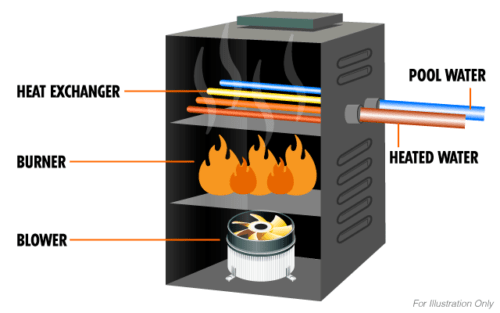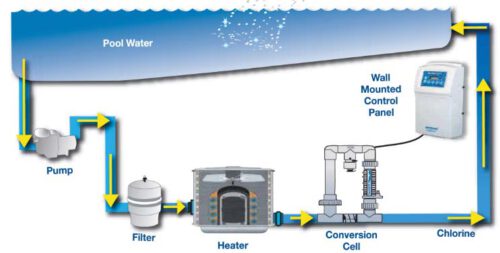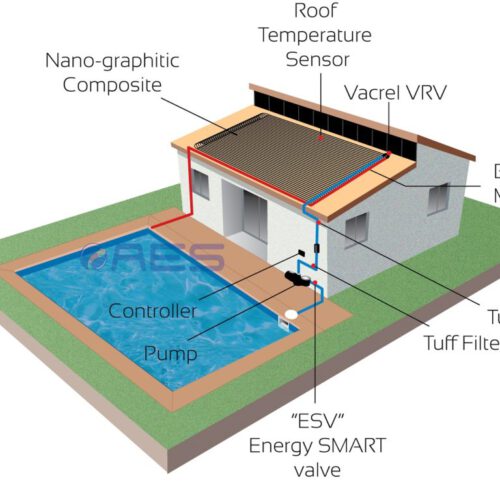Heating your pool is the most effective way to make the water more comfortable and prolong the bathing season. Maintaining a warm temperature inside your pool isn’t cheap; however, with a bit of planning and good sense, you can significantly decrease energy expenses. How to choose the best pool heater?
While choosing pool heaters for inground pools, you should take into account the ongoing maintenance costs together with the original price tag.
There are three kinds of pool heaters to select from –electric, solar and gas. Each of them has its own pros and cons, especially in the field of energy performance. Remember that your choice can have a great influence on your heating bills.
Gas pool heaters

Gas heaters are the most popular choice among pool owners, probably due to their reliability. In contrast to the other two options, gas heaters produce their own heat and therefore can be used to carry out the job regardless of the weather conditions.
Gas heaters are also the quickest working, which makes them perfect for pools that aren’t used constantly during the whole bathing season. On the other hand, they are the most costly to operate, since they need an ongoing supply of natural gas or propane.
Electric pool heaters

Electric pool heaters are more energy-effective than gas heaters. Instead of generating the heat on their own, they take it from the air and use it to heat up your pool’s water. While the heat transfer mechanism needs a little electricity, the amount of power used is very low compared to the amount of water heating being done.
Predictably, such heaters work worse in cold temps, which is why may not help you prolong the bathing season. Moreover, they usually cost more initially, although they will probably pay off with time.
Solar pool heaters

Another energy-effective option that can save you money is a solar pool heater. With such kind of system, your pool pump sends water via solar collection systems that warm it by means of sunlight. Solar pool heaters can have very different prices, but as well as heat pumps, they usually help you save in the long term.
The drawback of such systems is that they’re usually unable to heat your pool to the necessary temperature, and they definitely can’t do it quickly.
On the other hand, they can be used together with other pool heaters, warming the water as much as they can before passing it into a traditional heater that can then only use the volume of energy necessary to get the job done.
How to save on pool heating?
As you can tell, pool heaters for inground pools can maintain the water your pool at a comfortable temperature without using much energy.
Still, there are things you can do to save even more. The first tip is to get an inground pool cover, a blanket that covers your swimming pool when it’s not used and protects it from the chilling effect of air. In addition, there are simple things, such as keeping your pool at the lowest comfortable temperature and turning your heater off when the pool is not used.
If you want to find out more about pool energy savings, read up the US Department of Energy’s recommendations.